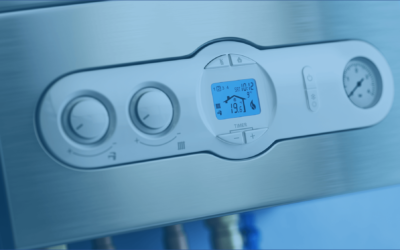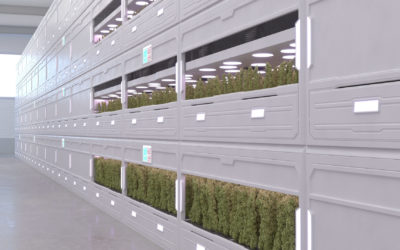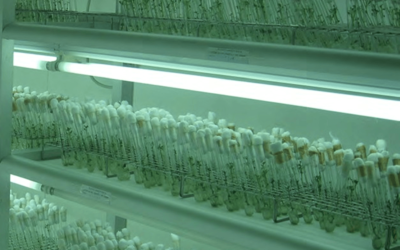Smart City Benefits are Clear, But Field Service Is Fundamental To Sustainability
30
June 2020
Smart city technology is proving to help cities around the world operate more efficiently while improving services to citizens and businesses.
Smart cities leverage information and communication technologies to enhance safety, the environment, services to citizens, economic development, and more.
About two-thirds of major cities around the world have already invested in smart city technology, and many others have plans, with government funding, public/private partnerships, and educational/academic programs converging to accelerate new innovations.
Here are ten ways smart cities are delivering value, but without a strategy to manage the hundreds of thousands or even millions of endpoints within smart cities, we cannot optimize and sustain benefits – which is where Connected Field Service for smart cities comes in.
1. More effective, data-driven decision-making with the ability to access and analyze a massive amount of information and gain meaningful, actionable insights
2. Enhanced engagement between local governments and citizens, with fast, friendly services including scheduling of services, support of crime-prevention programs, and more
3. Public safety, leveraging technology advances that reduce criminal activity including cameras, license plate recognition, next-gen “911” services and other programs designed to reduce the risk of terrorist attacks and other nefarious activity
4. Energy cost savings, through the use of controlled LED lighting systems, which Cloud of Things has been working on with Tondo; the reduction of carbon footprint and expensive traditional electricity costs are just the start of benefits that can extend into the support of IoT “hubs” on streetlights
5. Cleaner air and water through the use of sensors, reducing air pollution and even noise pollution in our most populated cities
6. More streamlined transportation systems, whether through traffic control for private and commercial vehicles or through more efficient public transport
7. Increased access and broadband for all; the infrastructure built for smart cities creates a platform for public WiFi for schools, homes, and libraries and even in parks and public venues, providing access to the Internet where it may have previously been unavailable or unaffordable
8. Economic development opportunities: cities are attracting new businesses and taxpayers by providing digital services as well as cleaner, friendlier and more efficient lifestyles
9. Smarter public utilities; Cloud of Things has also been extremely active in the smart meter space, and recently demonstrated our new DeviceTone Genie solution with our partner Microsoft – available on the Azure marketplace (showing how quickly any meter can be a smart meter simply by plugging into our small and ruggedized module).
10. Safer, smarter physical infrastructure: new roads, tunnels, bridges, dams, and other builds can now be instrumented with sensors to provide cities with predictive analytics to identify areas that need to be fixed before there is an infrastructure failure.
What has been missing in smart city initiatives is the opportunity to monitor, manage, and maintain smart cities using Connected Field Service! Without a long-term plan, investments in instrumenting our cities can fall short of reaching their optimized state – with a long-term plan that includes Connected Field Service, investments only render more return over the years ad the cost to replace a streetlamp – for example – can be dramatically reduced when that streetlamp is connected and can send a signal when a replacement lamp is necessary.
This is just one example of many. At Cloud of Things we are proud to be working with our partners through OEM and systems integration relationships, to make sure cities stay smart for years – decades – to come.
You can learn more about our Connected Field Service offerings, with Microsoft Azure, here.
Originally published on LinkedIn
Similar Blogs
Proud to Collaborate with Prodware and Microsoft in Transforming Field Service
Today, Prodware, an international digital transformation partner that leverages technological progress to help businesses prepare for the future, announced a new offering that fuses Microsoft Dynamics 365, Microsoft Azure IoT, and Cloud of Things DeviceTone to dramatically improve Connected Field Service (CFS).
Advancing Plant-Based Pharma like Cannabis with Sensors and IoT Platform
Plant-based biologics is seen by many experts in the bio-pharmaceutical industry to be the next major commercial development in the field of biotechnology. Advantages include the opportunity to produce safer drugs at lower costs when the cultivating of the plant source is of the highest quality, grown efficiently, harvested, and processed in a timely way, and distributed through reliable supply chains.
Hortica Comes out of Stealth Mode to Reveal Connected Cultivation Greenhouse for Medical Cannabis Leveraging Edge Compute and Advanced Automation
After years of development and testing, one of Israel’s most interesting AGTech startups, Hortica, announced this week they are coming to America to build connected, automated, large-scale precision growth facilities that have proven to produce the highest quality cannabis for medical products.



